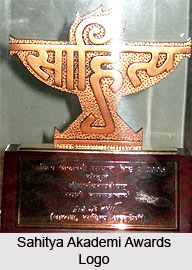 Sahitya Akademi Awards has been integrally associated with Indian regional literature since 1954, conducted solely by the Sahitya Academy itself, India`s most honourable award under the canopy of such prestige. Awarded basically for the most stellar contribution to Indian literature, for an uplifting cause, the award consists of a specific amount of prize money along with a plaque. Maithili literature has been associated with Sahitya Akademi Awards since the 1950s. Maithili language and writers did not receive Sahitya Akademi awards in the years of 1967, 1972, and 1974.
Sahitya Akademi Awards has been integrally associated with Indian regional literature since 1954, conducted solely by the Sahitya Academy itself, India`s most honourable award under the canopy of such prestige. Awarded basically for the most stellar contribution to Indian literature, for an uplifting cause, the award consists of a specific amount of prize money along with a plaque. Maithili literature has been associated with Sahitya Akademi Awards since the 1950s. Maithili language and writers did not receive Sahitya Akademi awards in the years of 1967, 1972, and 1974.
However the remaining of the years and their listing order is as stated below:
| Year | Book | Author |
| 2005 | Chanan Ghan Gachchiya (Poetry) | Vivekanand Tagore |
| 2004 | Shakuntala (Epic) | Niraja Renu - Khamakhya Devi |
| 2003 | Ritambhara (Short Stories) | Niraja Renu (also known as Khamakhya Devi) |
| 2002 | Sahasmukhi Chowk Par (Poems) | Somdev |
| 2001 | Pratijna Pandav (Epic) | Babuajee Jha `Ajnat` |
| 2000 | Katek Raas Baat (Poetry) | Ramanand Renu |
| 1999 | Gananayak (Short stories) | Saketanand (also known as S. N. Singh) |
| 1998 | Takait Achhi Chirai (Poetry) | Jeeva Kant |
| 1997 | Dhwast Hoet Shanti Stoop (Poetry) | Keerti Narayan Mishra |
| 1996 | Aai Kaalhi Parsoo (Short stories) | Raj Mohan Jha |
| 1995 | Kavita Kusumanjali (Poetry) | Jayamanta Mishra |
| 1994 | Uchitavakta (Short stories) | Gangesh Gunjan |
| 1993 | Samak Pauti (Short stories) | Govinda Jha |
| 1992 | Vividha (Essays) | Govinda Jha |
| 1991 | Pasijhaita Pathar (Play) | Ramdeo Jha |
| 1990 | Prabhasak Katha (Short stories) | Prabhas Kumar Choudhuri |
| 1989 | Parasar (Epic) | Kanchinath Jha `Kiran` |
| 1988 | Mantraputra (Novel) | Mayanand Mishra |
| 1987 | Atita (Short stories) | Umanath Jha |
| 1986 | Natik Patrak Uttar (Belles Letters) | Subhadra Jha |
| 1985 | Jeevan Yatra (Autobiography) | Hari Mohan Jha |
| 1984 | Suryamukhi (Poetry) | Arsi Prasad Singh |
| 1983 | Maithili Patrakaritaka Itihas (Treatise) | Chandranath Mishra `Amar` |
| 1982 | Marichika (Novel) Lily Ray | Lily Ray |
| 1981 | Agastyayaini (Epic) | Markandeya Pravasi |
| 1980 | Ee Bataha Sansar (Novel) | Sudhanshu Shekhar Chaudhary |
| 1979 | Krishna-charit (Poetry) | Tantranath Jha |
| 1978 | Baji Uthal Murali (Poetry) | Upendra Tagore `Mohan` |
| 1977 | Avahatta: Udbhava O Vikas (Literary criticism) | Rajeshwar Jha |
| 1976 | Sitayana (Epic) | Vaidyanath Mallik `Vidhu` |
| 1975 | Kichhu Dekhal Kichhu Sunal (Reminiscences) | Girindramohan Mishra |
| 1973 | Naika Banijara (Novel) | Braj Kishore Verma "Manipadma" |
| 1971 | Payasvini (Poetry) | Surendra Jha `Suman` |
| 1970 | Radha Viraha (Epic poetry) | Kashikant Mishra |




















